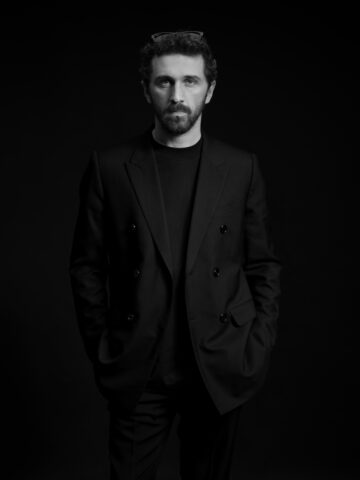
IN CONVERSATION WITH DAVID KOMA
Blumarine, long synonymous with butterflies, chiffon and a distinctly Y2K aesthetic, has…
Interview by Chiara Anzivino
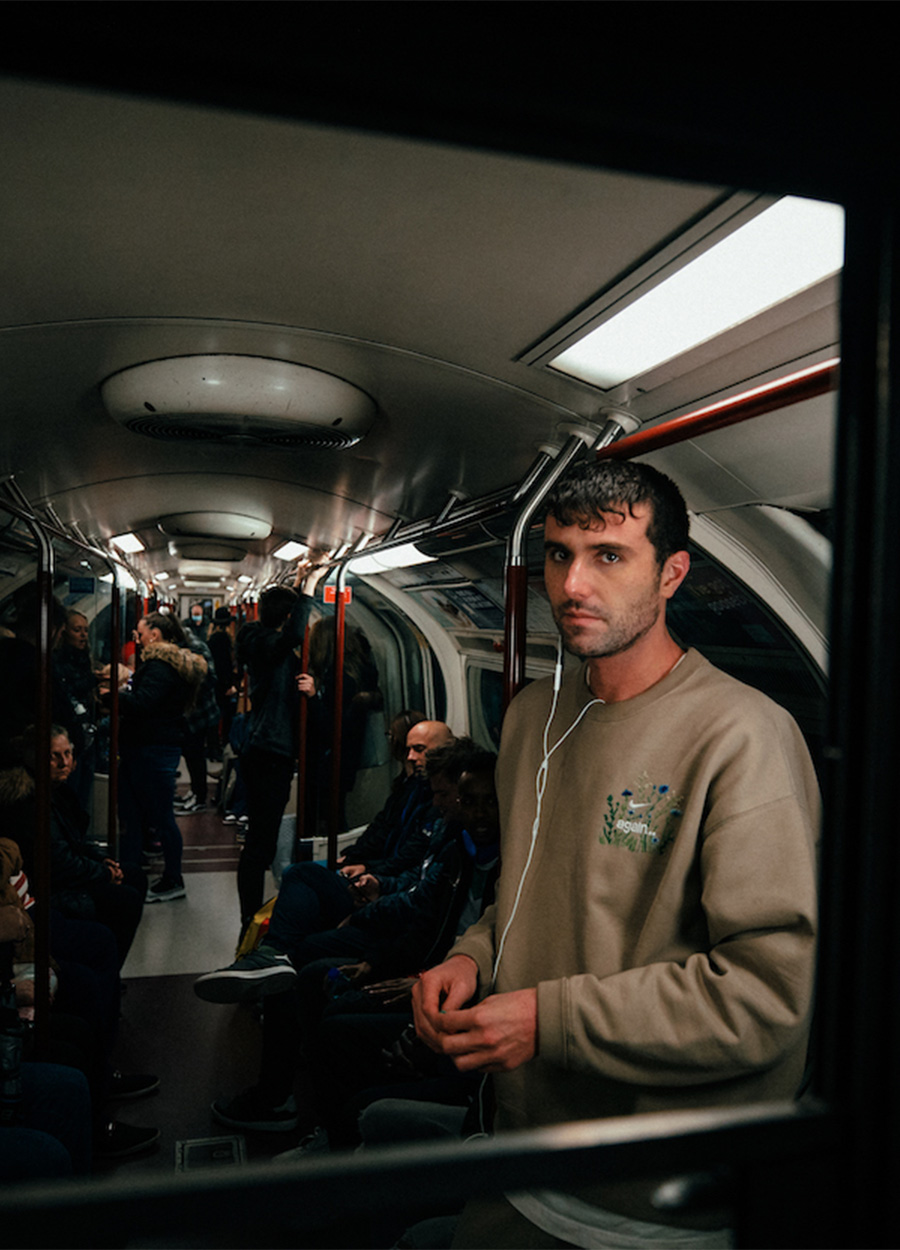
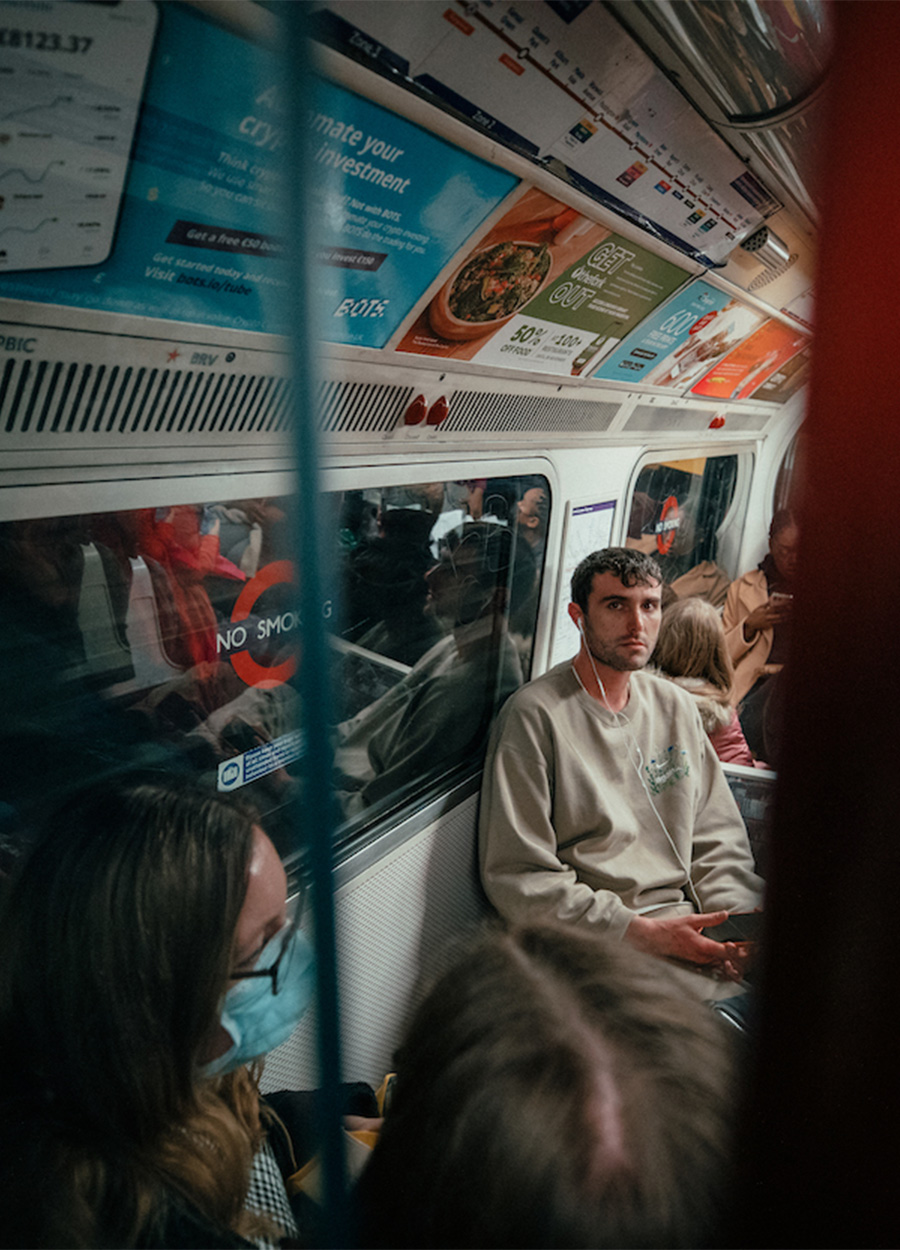
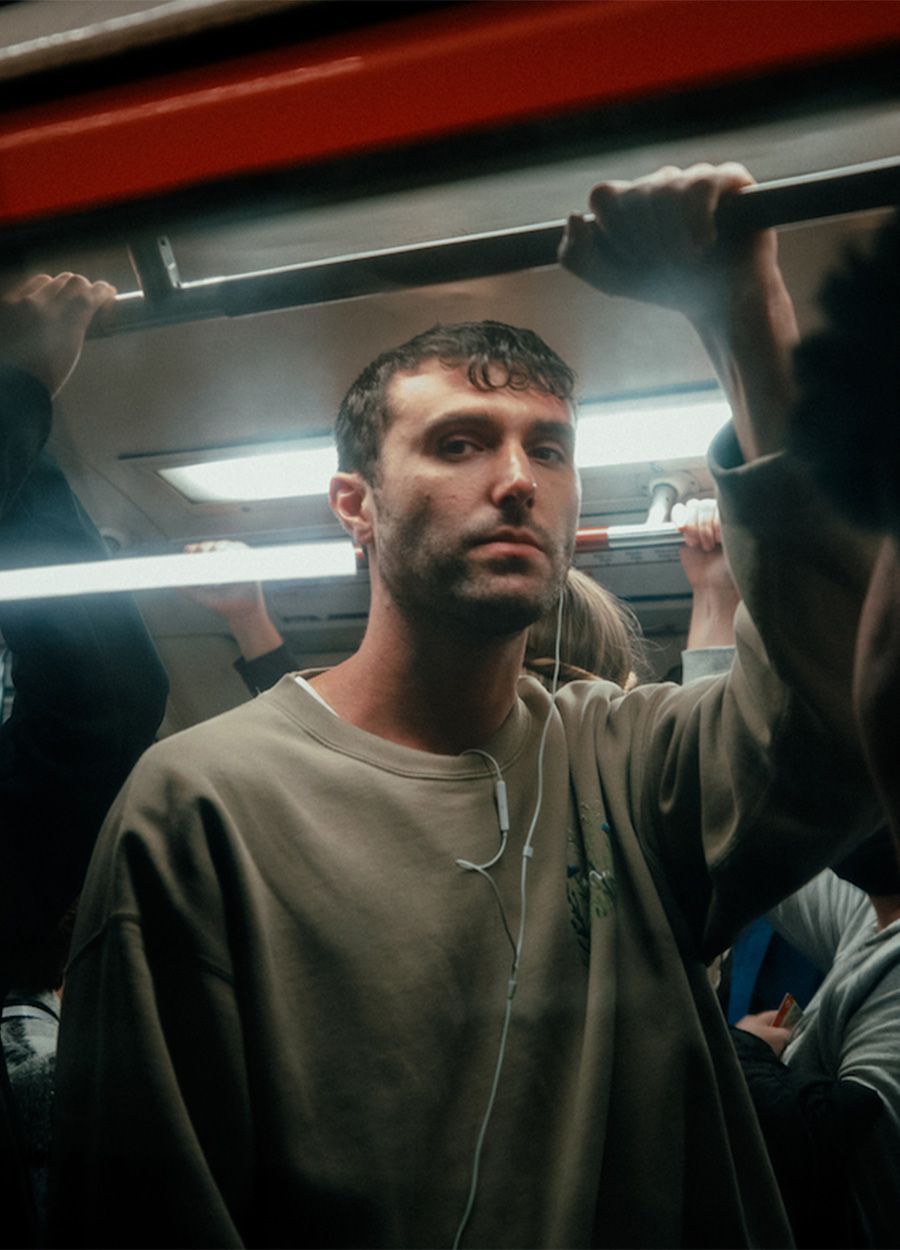
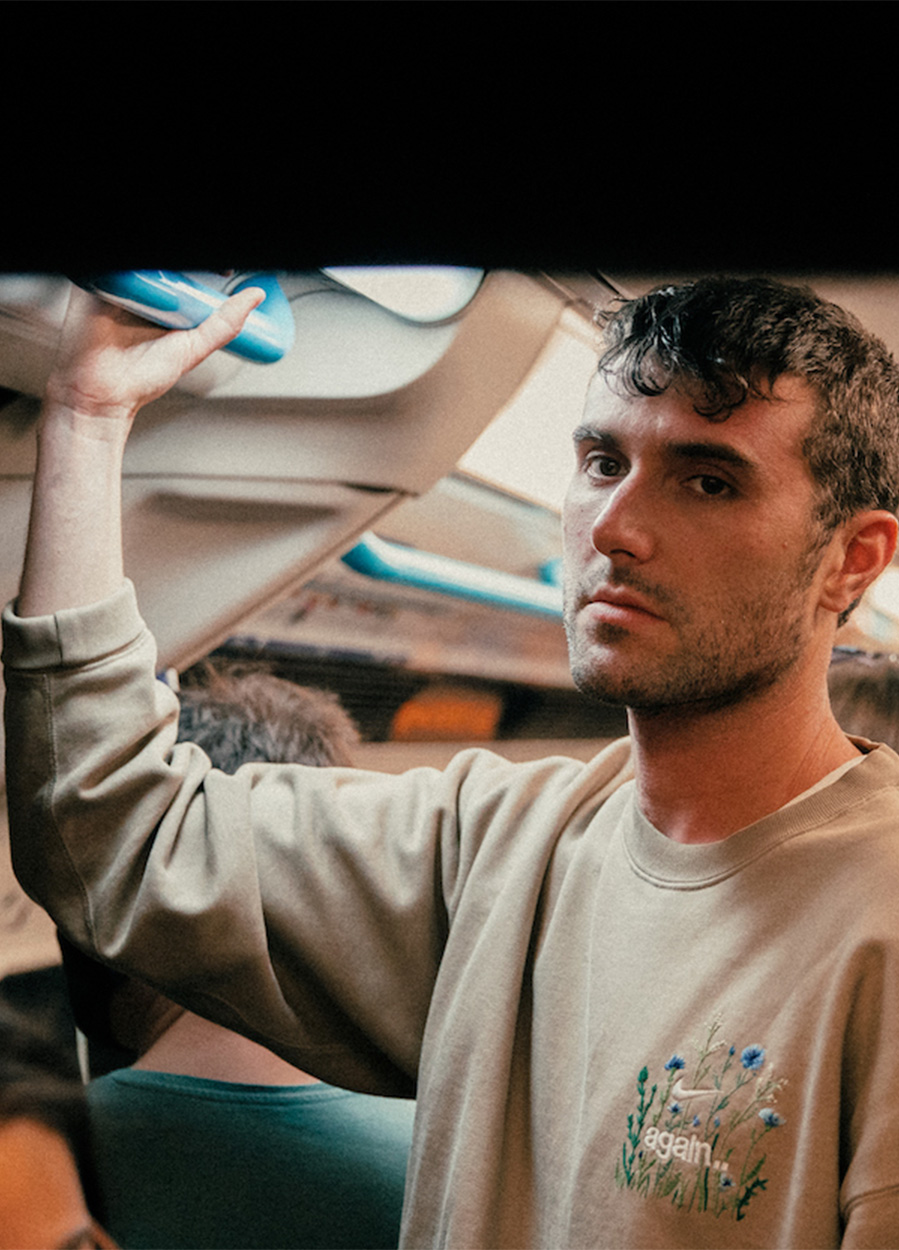
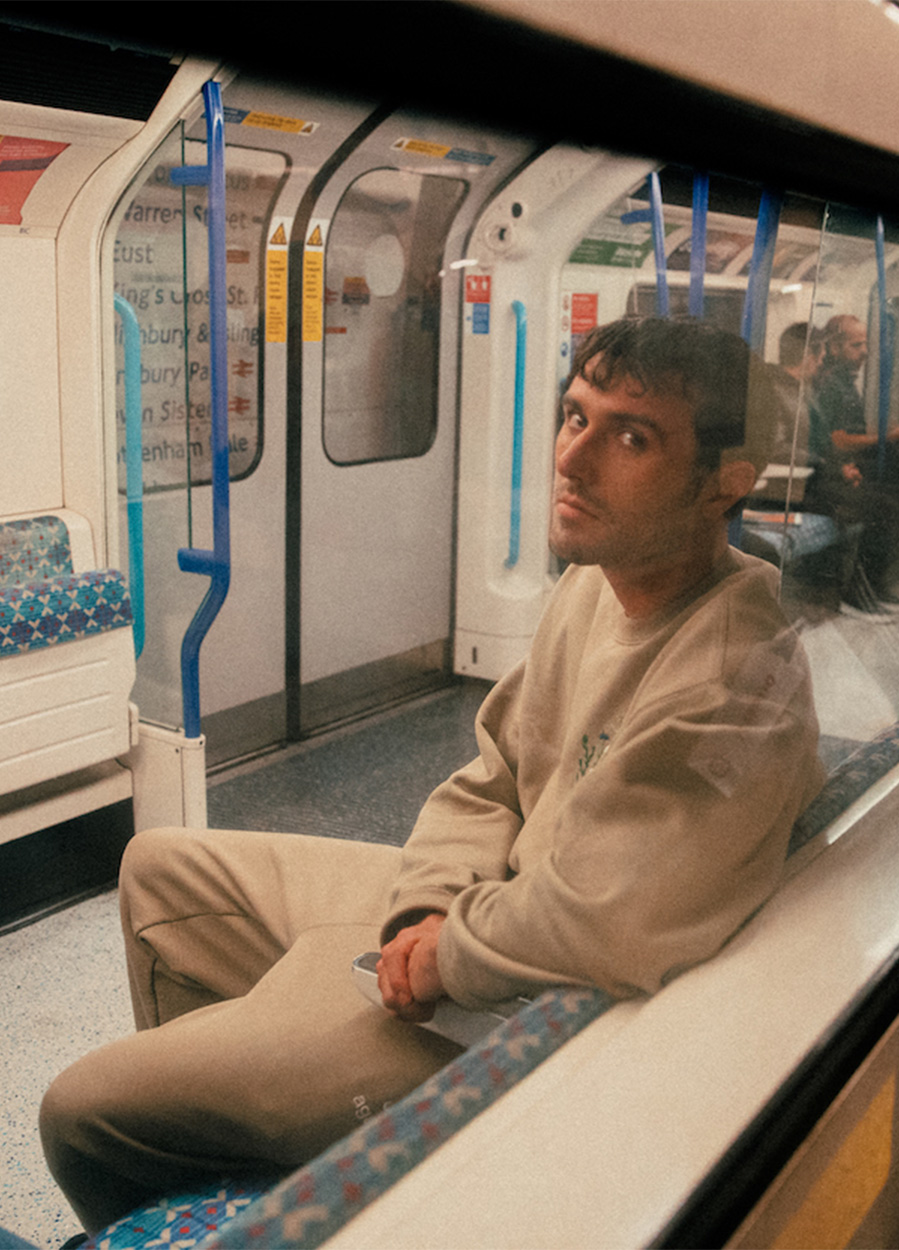
He was lucky to have been as good at simply nothing else as he was in music, so he took off and stayed.
His path to music was organic, but filled with a different approach in which he as an artist does not become the focus of his work, but the world and the people around him.
The British DJ and producer Fred again.. rather seems like a mediator between the worlds and lets the small moments of his environment become music. Music is not seldom characterized by emotion and a sequence of a person, but how often do we really listen to it and let the story really be told through this song? Fred again.. makes us all inevitably become part of a moment, part of a moment of a person we probably don’t know and will never meet, but in that moment we feel those minutes of their life with them.
And with that he brings us closer to something that more and more people wish to feel and see in a world where even emotions have to be polished somehow: the actual life
Numéro Berlin talked to Fred again.. about his latest album ‘Actual Life 3’ and what actually makes the truly defining and perfect moments in life.
In Berlin! Dublin is great, too, London really finds different ways, and I always discover something new there. But yes, Berlin is at the top of that!
In some ways, I’m probably the worst person explaining this. I think a lot of people take it in very different ways, and that’s my favorite thing. So it’s the kind of music that comes from my soul and is very personal.
Many of the tracks on my first two albums were like four to the floor and drums, but not necessarily dance music. It’s more something that evolves as a self-propelling thing. Last year I finished the album with Brian Eno, and it’s definitely the least bloody music I’ve probably made. It’s kind of a range. Increasingly, we’re not doing that anymore, which is great. People are growing up listening to everything because they don’t have to throw away the vinyl that their parents have anymore. You have every song in the world now, which has its drawbacks. But the upside is that most people know they don’t have to commit to a genre anyway. You can like a lot of things at the same time.
In fact, I started playing classical instruments, like the piano when I was younger. And then I started playing the drums and classical percussion like marimbas and timpani. Things like that. Then I started playing the guitar and writing with a tape machine, but not on tape, like a full digital track. And it was everything I ever wanted to do. So it all came organically, and I’m incredibly lucky my parents supported it. I was obsessed with it from the beginning and was allowed to dedicate myself to it.
“I went to a classical music college where everybody practiced eight hours daily, which I liked. They take you back to other worlds where sometimes people say, oh, you know, just wait for the inspiration to come. Yeah, just go with the flow.”
Hard to say; I don’t know if there was that one special one. But there were many moments in classical music when my teachers were very hard on me, and it could get very intense, and somehow, I respected the severity that was given to me without crossing a line. And I like it very much. They like classical discipline. I went to a classical music college where everybody practiced eight hours daily, which I liked. They take you back to other worlds where sometimes people say, oh, you know, just wait for the inspiration to come. Yeah, just go with the flow. But the great classical composers have told, no, sit down and get to work. If it’s not there, try again and again and don’t stop. And for me, it really resonates.
That’s probably the most inspiring thing for me, other people’s perceptions and lives, a difference of perspective, and I think that can also be empowering.
I love working with people in this way. If I were something like a poet or a painter, these people would do that. For some, it seemed so easy to do that. I’m constantly renewed by all the different people I’ve ever met, and my energy is rejuvenated by them.
Probably “Nathan”. I usually only sing songs when I have to say something. I don’t feel comfortable singing, so I only do it when I feel like I absolutely have to, and in this one, there was just me. It was something I had never done before.
It was very sensitive and scary, but it was also clear what had to happen there because I knew it. So, my words for that now.
It started with this guy named Carlos. He was a construction worker in Atlanta, and I was filming him on my cell phone, and he had this amazing sense of enchanting spirit. He was just infectiously joyful. I woke up with these videos and watched them, and they made me laugh. And then I had my laptop open, with my logic, my music stuff, and I started playing chords to it because he was so melodic. He was so musical. He was so clearly in E-flat major and 110 beats per minute.
I immediately fell in love with the feeling of taking these seemingly mundane moments and trying to expose all of the beauty that I think is in them yet sometimes.
A melody emerges from that for me when I look at a person. And I love how the language of a person becomes part of it. In the end, everything just becomes one.
Yes definitely. It’s very close, especially when you turn this sequence into a track you spend even more time with it. It’s a very intense process, and sometimes, you have to stop for a moment and take a step back.
Oh God, don’t ask me that. Honestly, I don’t think so. I used to not be on social media before, and then it became my diary to save these movies I took of and for myself or my friends. And when I started playing, there was somehow no way around it because it was the “perfect” tool. I was also glad it was there, and it was a good framework for my actions. But like you say, it has its downsides, but it’s there. And it’s not going away. So we must learn how to deal with it and do it right.
“Basically, clubs are places of a sense of connection, and music is, in a way, the tool for that.”
Great Question. Honestly, I wasn’t aware of that, I’m really thinking about it now for the first time.
It is definitely an unconscious movement. Maybe because these sequences influence our lives but perhaps more than we assume. And some people go to clubs like other people go to church. It’s a place where you go to experience something. I may need that, to take that real moment with me and celebrate them, to give them a space in those rooms.
Basically, clubs are places of a sense of connection, and music is, in a way, the tool for that. And these sequences are inextricably interwoven with reality for me, and I integrate them into something like that, and everyone kind of feels that.
Going to the pub with my friends. Or just spend Christmas with the family. My favorite drink. It’s just a gut feeling. Like those evenings when you sit outside in the garden with your friends, chain smoke, and talk late into the night.
I don’t think we’re losing it; we don’t live in that kind of world. It’s all such a tangible thing and it’s always been part of it and it will be forever. It is the basis. Both can merge with each other even further and create even more brand-new things. Digital music is no less a demonstration of the human spirit than a classical orchestra, it’s just implemented differently but ultimately based on the same foundation. They are just different tools and no matter how much we experiment with them, these classical instruments will always be part of them.

Blumarine, long synonymous with butterflies, chiffon and a distinctly Y2K aesthetic, has…
Interview by Chiara Anzivino
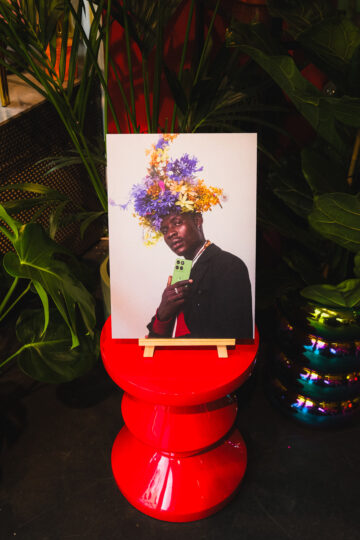
Motorola’s 2025 lineup of smart- and headphones leaves a fashionable impression.
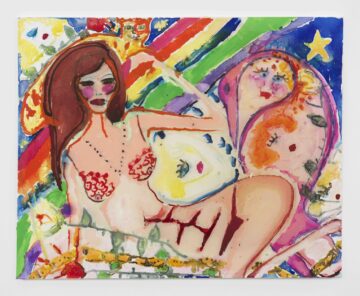
Paz de la Huerta presented Sacrifice, her second solo exhibition with Ruttkowski;68 in…